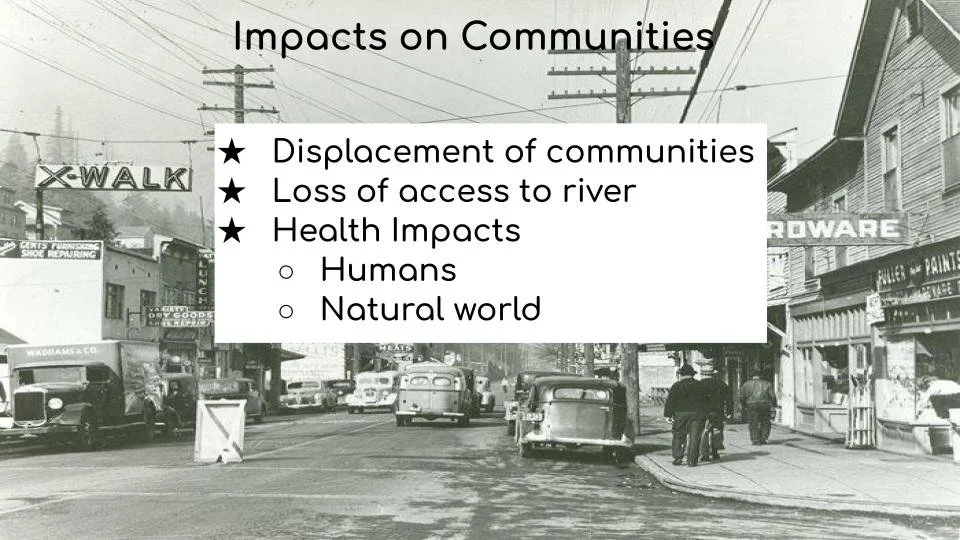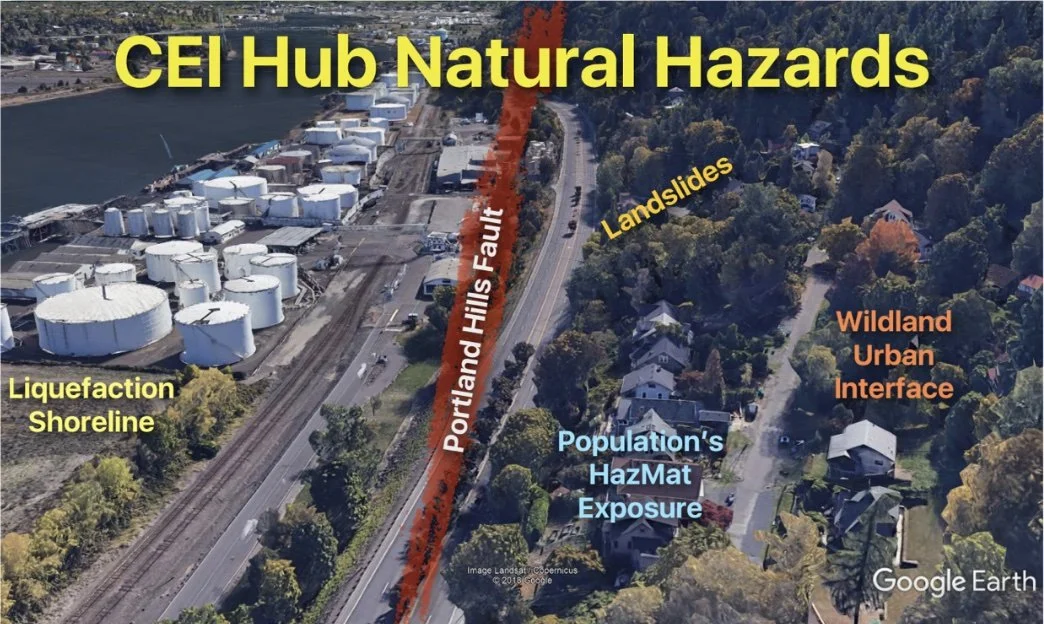
Land Use Planning
The State of Oregon created a land use planning system which is intended to guide municipalities in their land use planning and zoning. Despite the best intent of the authors of the law, the lower Willamette and the nearby communities were sacrificed for the economic and health benefits of the rest of the city and state.
What is Land Use Planning?
Land use planning and development is the process by which community leaders allocate those resources and establish a policy for the use of land to facilitate the best land development for the general welfare of the area's residents.

“We abuse the land because we regard it as a commodity belonging to us. When we see land as a community to which we belong, we may begin to to use it with love And respect.”
-Also Leopold
How has Land Use Planning Affected the Lower Willamette?
If Portland and indeed Oregon, believed in equity, as they say, the state land use planning laws would include the acknowledgement that we have a responsibility to honor all treaties in our land use planning decisions. The core of the challenges along the lower Willamette, stem from a refusal to protect the fishing rights guaranteed by treaty. It should be fundamental to the comprehensive planning process. The land in the Lower Willamette is now hardly livable and barely fishable. Low income neighborhoods in Portland are re-arranged daily to benefit out of state construction companies with no regard to the people who live there.
Comprehensive planning is currently not balanced within communities. State land use planning laws need to guarantee a balance of the rules within each community to avoid disproportionate harm.
Portland’s comprehensive planning process is suppose to include the community but all too often it is created by planners, in partnership with industry, and then presented to communities who have no real say in the outcome. Portlanders are required, by law, to include the community in the sign of our city but they will come with a plan and ask the public to rubber stamp it. Neighborhood associations are contacted about permits in their neighborhoods but way past the point that they are easy to stop.

